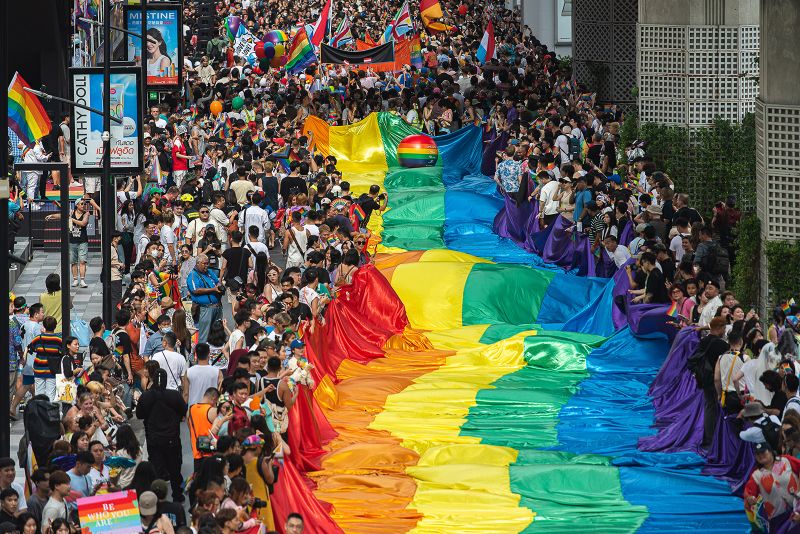Same-Sex Marriage Progress in Asia Faces Setbacks
Historically, Asia has been perceived as a region with conservative views towards same-sex marriage and LGBTQ+ rights. However, recent years have seen a significant shift in attitudes and progress towards legalizing same-sex marriage in several Asian countries. This momentum towards acceptance and equality was indeed encouraging, but unfortunately, the journey has hit roadblocks in some nations.
Thailand, commonly celebrated for its open-mindedness and vibrant LGBTQ+ community, once appeared to be at the forefront of the same-sex marriage movement in Asia. The country’s proposed Civil Partnership Bill aimed to grant same-sex couples legal recognition and rights similar to those of heterosexual couples. The bill received initial approval from the Thai Cabinet, providing hope for a more inclusive society. However, political complexities and conservative opposition have delayed its progress, leaving the future of same-sex marriage in Thailand uncertain.
Similarly, Taiwan, often heralded as a beacon of LGBTQ+ rights in Asia after becoming the first country on the continent to legalize same-sex marriage in 2019, has faced setbacks. The ruling Democratic Progressive Party’s defeat in local elections led to concerns about potential policy reversals or amendments that could undermine the existing legal framework for same-sex marriage. The future of LGBTQ+ rights in Taiwan is now facing challenges, highlighting the fragility of progress in the face of political changes.
Japan, despite its reputation for traditional values, has shown promising developments towards recognizing same-sex partnerships. Several municipalities in Japan have begun issuing partnership certificates to same-sex couples, a step towards providing legal protections and benefits. However, the absence of nationwide legislation means that these partnerships are not universally recognized, showcasing the ongoing struggle for equal rights in the country.
While progress may seem slow and uncertain in some Asian countries, there are still glimmers of hope and resilience within the LGBTQ+ community. South Korea’s landmark ruling by the Constitutional Court recognizing the need for legal measures to protect same-sex couples stirred optimism for future advancements in LGBTQ+ rights. The ruling emphasized the importance of equality and non-discrimination, signaling a potential shift towards greater inclusivity in South Korean society.
It is evident that the path to achieving equal rights for the LGBTQ+ community in Asia is multifaceted and complex, influenced by cultural, social, and political factors. While setbacks and challenges may arise, the resilience and determination of activists and advocates continue to drive progress towards a more inclusive and accepting society. Despite the obstacles faced along the way, the fight for same-sex marriage and LGBTQ+ rights in Asia remains a powerful and ongoing struggle for equality and justice.

